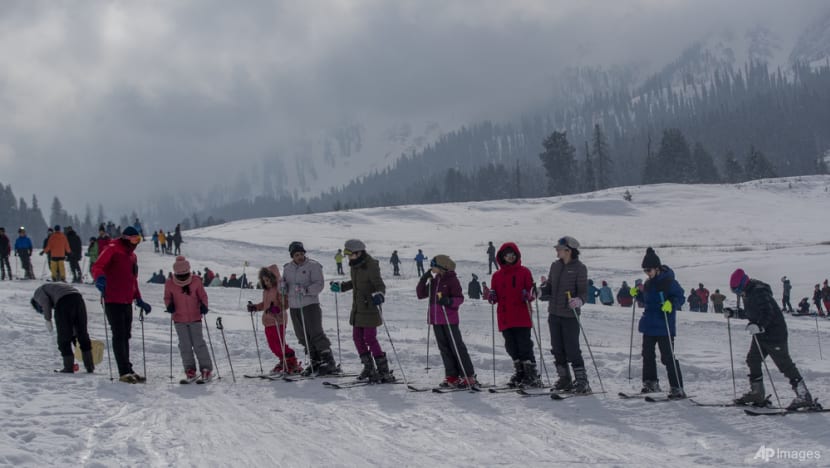Gulmarg is not the only town in Jammu and Kashmir to suffer from overtourism. Heaps of plastic waste can also be seen in other popular tourist spots like Pahalgam, Sonamarg, Yusmarg, and Doodhpathri.
Records show that about 3 million tourists, including 43,000 foreigners, visited the disputed Himalayan Territory last year, a 9 per cent increase from 2023.
Tourism contributes an estimated 7 per cent to the region’s gross domestic product (GDP) of around US$28 billion.
“Kashmir is beautiful. To maintain its beauty, locals as well as tourists need to keep the environment (clean). It is because of the clean environment and beauty that people from different regions visit here,” said Ravi Baghel, a tourist from India’s Madhya Pradesh.
DESTROYING NATURE
Authorities said they can barely keep up with the rubbish tourists leave behind. They have taken to burning the waste, which pollutes the region’s pristine air.
The garbage is also attracting wild animals like monkeys and pests, and threatening local ecology.
As more and more forests get cleared to build infrastructure and accommodation to cash in on the tourist dollar, calls to forbid new projects have also grown louder.
Advocates said the destruction of trees and ongoing construction have disrupted the region’s climate, contributing to an 87 per cent rainfall deficit in the Kashmir Valley in January.

ENVIRONMENTAL CRISIS
Experts have cautioned that such levels of tourism, while an enormous boost to the economy, are leading to a severe environmental crisis. Some suggested limits on visitor numbers and diverting tourists to lesser-known destinations.
“There is a dire need that tourism policy of Kashmir should be now … revised in consideration of new tourist places or spots that have come up … (and) footfall that can be (absorbed) by these tourist resorts,” said environmentalist Aijaz Rasool.
There have also been calls for the government to set up solid waste management plants near tourist areas, install more dustbins and public washrooms, and enforce an existing plastic ban.

